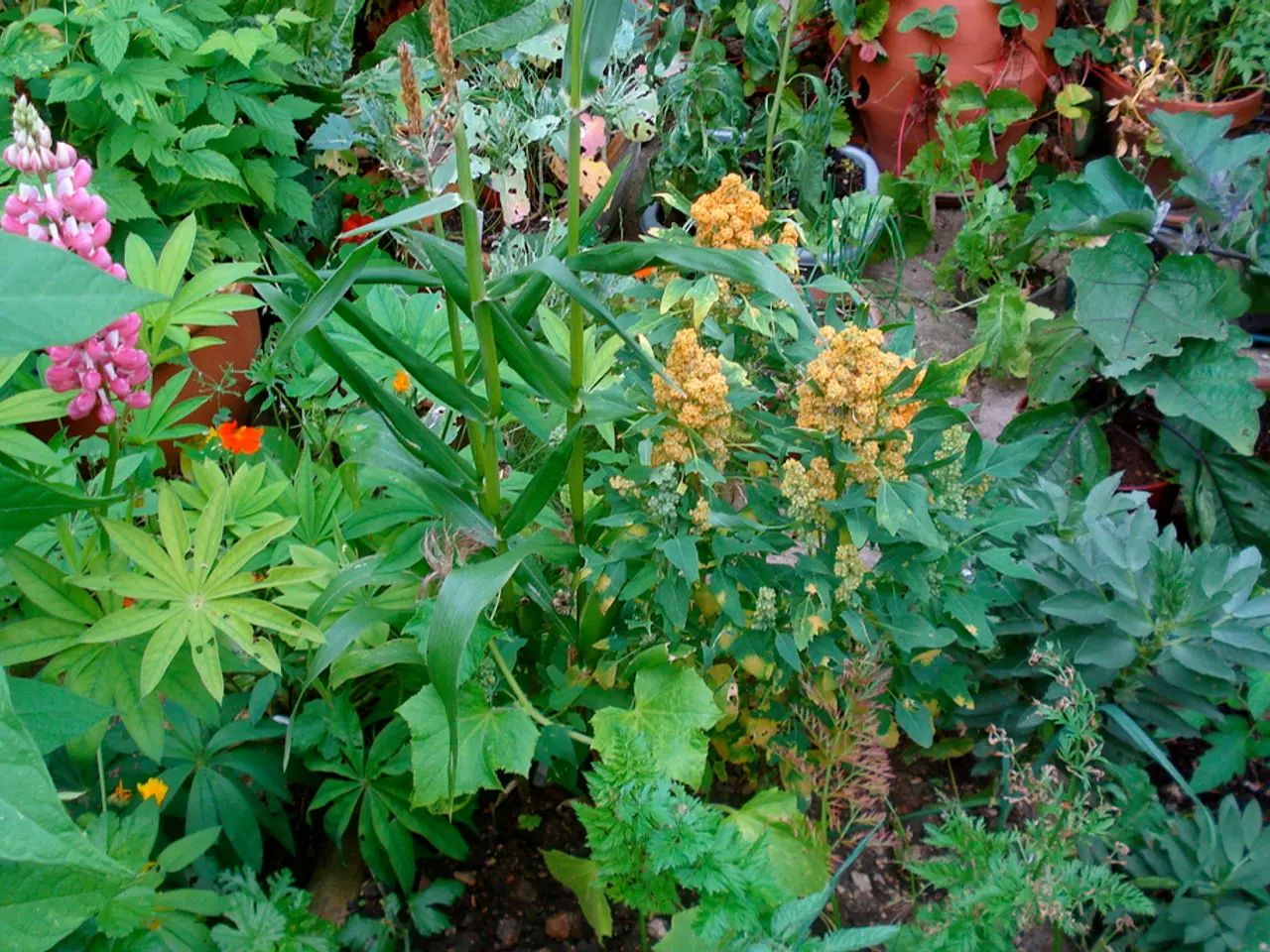Horticultural Oil Explained: Its Role in Promoting Stronger, Healthier Plant Growth
Horticultural oil is a popular and effective pest control option in gardening, offering a low-toxicity solution for managing soft-bodied pests such as spider mites, mealybugs, aphids, and scale insects [1][3][5]. This oil works by smothering pests on contact, disrupting their feeding and development by coating their bodies, including eggs and immature forms [1].
One of the key advantages of horticultural oil is its broad-spectrum control of not only soft-bodied pests but also some fungal diseases. It is generally safe for plants and mammals, including humans and pets, and is compatible with organic gardening [4][5]. Horticultural oil can even be applied as dormant oils in winter to control overwintering pest stages on trees and shrubs [4][5].
However, it's crucial to use horticultural oil carefully to avoid potential downsides. Since it has no residual effect once it dries, pests must be directly coated for control, requiring thorough and repeated application [1]. Overbroad application can harm beneficial insects like predatory mites, potentially disrupting the natural pest control balance [1]. Additionally, there's a risk of plant injury (phytotoxicity) if misapplied, especially under hot weather or on sensitive species [1][3].
Another important consideration is the effect of horticultural oil on pollinators. Using horticultural oil on plants in flower will likely destroy pollinators [2]. Therefore, it's advisable to apply horticultural oil during the off-season or on non-flowering plants.
It's also essential to note that while horticultural oil is highly effective for pests that are on the plants at the time of spraying, it has no deterrent effect [6]. This means that it only kills insects that are on the plants when they are sprayed.
When using horticultural oil, always refer to the directions on the product label, mix with water according to the instructions, and spray well for thorough coverage. However, horticultural oil is not appropriate for certain plant species, such as spruce trees, redbud, Japanese holly, hickories, maples like red maple and Japanese maple, cedar, some azaleas, smoke tree, and blue-colored evergreens [7].
Some horticultural oils can burn, and all of these oils are at least slightly toxic to fish. Horticultural oil can be harmful to plants when used in high temperatures or freezing temperatures. Moreover, horticultural oil is not safe for blue-colored evergreens when used at any time, as it may remove the blue coloring from the needles [8].
In summary, horticultural oils are a powerful and relatively safe pest control tool when used carefully and under appropriate conditions. They provide physical and chemical suppression of pests while minimizing harm to the environment. However, they require careful timing, thorough coverage, and consideration of their effects on beneficial insects and plant health [1][3][4][5].
References:
[1] Horticultural oil. (2021). University of California Agriculture and Natural Resources. https://ipm.ucanr.edu/PMG/r471300511.html
[2] Neem oil. (2021). University of California Agriculture and Natural Resources. https://ipm.ucanr.edu/PMG/r471300511.html
[3] Horticultural oil. (2021). Cornell University Cooperative Extension. https://blogs.cornell.edu/extplantclinic/2018/04/11/horticultural-oil/
[4] Horticultural oil. (n.d.). North Carolina State University Cooperative Extension. https://content.ces.ncsu.edu/horticultural-oil/
[5] Horticultural oil. (n.d.). University of Massachusetts Extension. https://ag.umass.edu/landscape/fact-sheets/horticultural-oil/
[6] Horticultural oil. (2021). Michigan State University Extension. https://www.canr.msu.edu/news/horticultural_oil_for_pest_management
[7] Horticultural oil. (2021). University of Wisconsin-Madison Division of Extension. https://hort.extension.wisc.edu/articles/horticultural-oil/
[8] Horticultural oil. (n.d.). University of Maine Cooperative Extension. https://extension.umaine.edu/publications/4452e/
Maintaining a balanced home-and-garden lifestyle involves thoughtful pest management, and horticultural oil is a versatile solution that caters to this need. Ideal for organic gardening, it offers broad-spectrum control against pests and some fungal diseases, while being relatively safe for plants, mammals, and beneficial insects like predatory mites. However, due to its lack of residual effect and potential risks, such as plant injury or harm to pollinators, careful application is essential to ensure its effectiveness and eco-friendly use.




